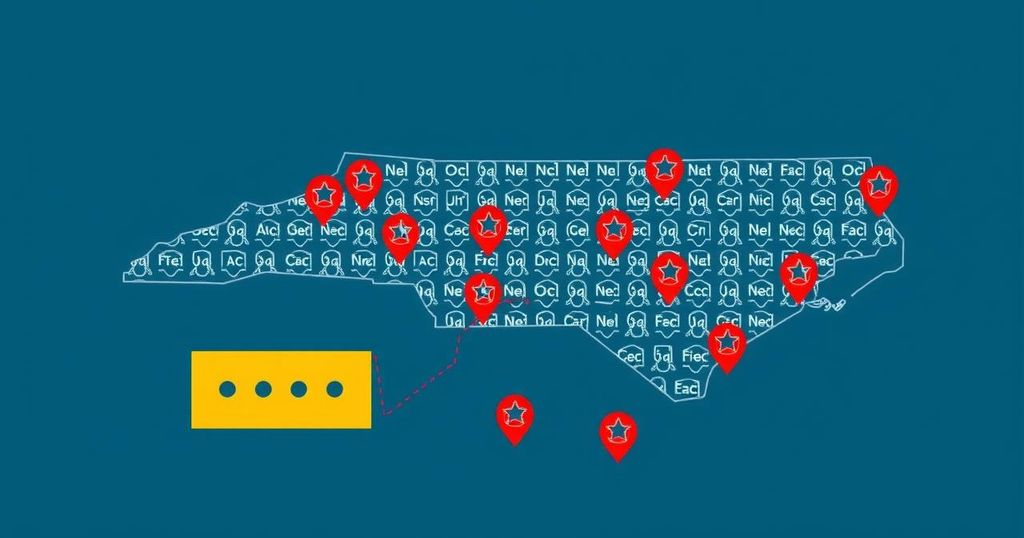Politics
AFRICA, CIVIL RIGHTS, COUNCIL OF STATE, DEAN, DEANNA TOWNSEND - SMITH, DEMOCRATS, ELECTION, ELECTION INTEGRITY, GOP, GREEN, JOSH STEIN, LEGISLATION, MICHELE MORROW, MO GREEN, NC, NORTH CAROLINA, PRESIDENTIAL ELECTION 2024, PUBLIC INSTRUCTION, RACHEL HUNT, REPUBLICAN, ROY COOPER, SOUTH AFRICA, STEIN, VIRGINIA
Jamal Walker
0 Comments
Implications of North Carolina’s 2024 Election Results for Public Education
The recent elections in North Carolina have altered the landscape for public education, opening avenues for potential bipartisan collaboration. With Democrat Mo Green winning the role of superintendent and Josh Stein as governor, there is hope for increased funding and support for public schools. The loss of the Republican supermajority may facilitate improved conditions for educational policies, though skepticism remains regarding the willingness of Republican lawmakers to embrace change.
As North Carolina braces for significant shifts in public education dynamics following the 2024 election, the balance of power has notably changed. With Democratic candidates like Mo Green emerging victorious, the state could see productive collaborations or intense political maneuvering regarding educational policy. Green’s triumph and the Democratic presence in various state offices, including the governor’s seat now held by Josh Stein, signal a potential shift toward increased funding and resources for public schools. The functions of key educational leaders, including the governor, the lieutenant governor, and the State Board of Education, will play crucial roles in shaping educational strategies. Green, committed to pursuing higher investment in public education, aims to address underfunding, as he emphasizes the importance of supporting educators and disadvantaged students. He highlighted the necessity for early learning interventions, better teacher compensation, and improved student support, while striving to restore respect within the educational community. As a result of the electoral dynamics, educators and stakeholders look to potentially more bipartisan support for public education initiatives. While the Democratic party has made gains, including a broken supermajority in the state House, concerns about the Republican response to proposed legislation remain. Observers express optimism regarding a future that could prioritize public education, yet skepticism persists about whether the opposition will embrace collaboration or revert to previous trends of supporting alternative schooling options like vouchers. The State Board of Education retains significant influence in overseeing educational policies, although its power has been contested. Recent changes by Republican legislators have sought to diminish the Board’s authority, but with Democratic leadership in play, subsequent adjustments in governance and policymaking appear probable. This evolving landscape will be closely monitored for indications of how educational priorities will be addressed in the wake of the elections.
The implications of the North Carolina 2024 election results could profoundly impact public education in the state. With the election of Democratic leaders in pivotal positions, there is an opportunity for new approaches to educational policy that emphasize public school investment and support for educators. The involvement of various stakeholders, including the governor and the State Board of Education, will be critical to shaping the future of education in North Carolina. The breakdown of the Republican supermajority provides a fresh context for policy-making and may facilitate collaborative efforts to enhance public education resources and infrastructure.
The 2024 election results usher in a period of potential transformation for public education in North Carolina. With a Democrat in the role of state superintendent and several other key offices, the prospect for increased funding and legislative support appears promising. The dynamics within the legislature and among educational leaders will be instrumental in determining the extent to which public schools receive the attention and resources necessary for success, highlighting the importance of collaboration in addressing educational needs.
Original Source: www.charlotteobserver.com




Post Comment